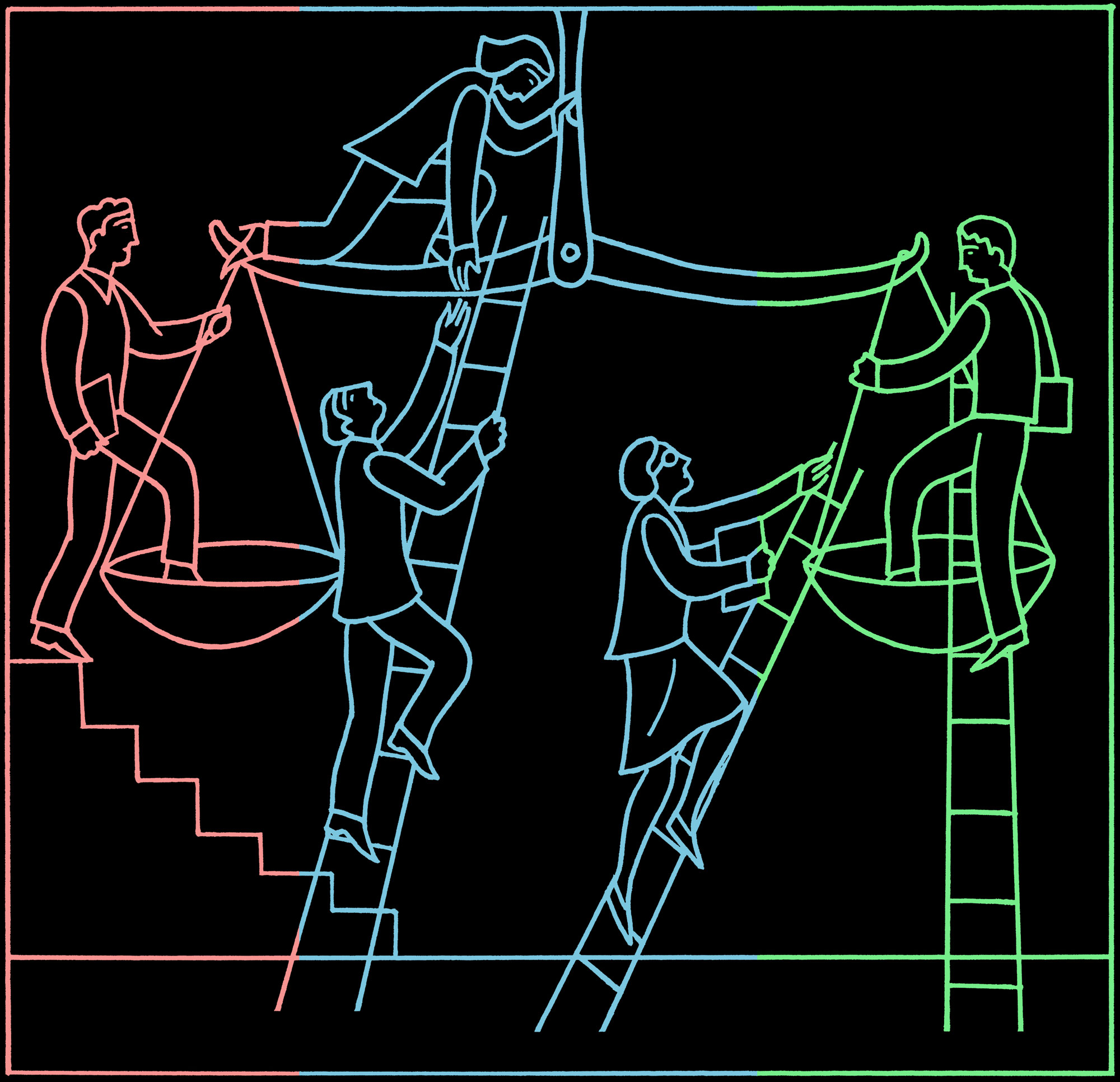
Access to justice Access to justice Access to justice
After 125 years, there's still room for growth in the UW School of Law.
By Tamara Lawson | Illustration by Anthony Russo | December 2024
As we celebrate the UW School of Law’s 125th anniversary, I look confidently toward our next 125 years, prepared to meet the modern challenges of legal education and access to justice as we continue to foster positive change in the legal profession in Washington and around the world. When we talk about “access to justice” within our legal framework, there are three key challenges to consider: access to law school, access to the legal profession and access to the courts. Currently, barriers of entry at each of these points result in a harmful lack of legal representation, especially in rural areas where there are legal deserts.
We are fortunate that our state Supreme Court is committed to reducing obstacles to access. In March, Washington added an alternative pathway to licensure that emphasizes experiential learning in lieu of a traditional bar exam. This innovation makes attorney licensure more equitable. The new pathway allows law students to exhibit their competency via supervised practice. Through clinics, externships, skills courses and pro bono opportunities, UW Law students learn from exceptional faculty and practitioners and are prepared to bring their practice experience to their future careers. The Washington State Bar has initiated a task force to work on further implementation of this pathway. Additionally, Washington has adopted the NextGen Bar Exam, beginning in 2026, which focuses on lawyering skills and knowledge instead of rote memorization.
At UW Law, we are also innovating around admissions. Having obtained a variance from the American Bar Association’s Standard 503, we can admit up to 10% of our incoming J.D. class from among UW undergraduates without any standardized test score. Our goal is to enroll students who demonstrate outstanding academic and professional promise and whose background and experience will contribute to our learning environment. This new program aligns with the University’s holistic approach to admissions. We believe it will help us gather valuable data to reimagine ways to identify and educate future leaders in the law.
Our learning environment at UW Law reflects our understanding that meaningful access includes wraparound support for all law students. We have integrated career development and academic success services into the first year of the student experience. Further, our academic success program supports the full transition into the profession. For example, we provide an in-person simulated bar exam—a crucial opportunity for students who missed in-person exams during the pandemic. We also launched—and quickly doubled—our bar study awards program, supporting students with significant financial need. These initiatives have improved both morale and results.
Finally, access to the courts requires increasing access to legal representation and addressing the issue of legal deserts in Washington. We need skilled lawyers to work as public defenders and in other areas of public interest. UW Law is committed to public-interest law and our Gates Scholars program provides full scholarship support for students seeking to serve in this practice area. Additionally, all UW Law students complete a public-service requirement prior to graduation.
Our program of legal education provides these and other opportunities to develop professional identity and cultural competency—essential ingredients in achieving true access to justice.